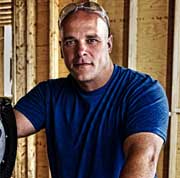It may be quite difficult to navigate the complicated world of HVAC (heating, ventilation, and air conditioning) systems, especially if maintenance or repairs are needed. Effectively involving an HVAC specialist is essential to maintaining optimal performance and extending its lifespan.
In this blog post, we have provided six essential questions you should pose to an HVAC specialist in order to keep your system in optimal condition. These inquiries will enable you to make more informed decisions regarding its upkeep; from ascertaining its current state to researching energy-saving upgrades and any repairs which might be necessary.
By making a proper maintenance schedule and following up on questions about the system, you can extend its lifespan and ensure continuous comfort and efficiency in your space.
Can you walk me through the current condition of my HVAC system?
It’s crucial to assess the state of your HVAC system right away to guarantee lifetime and peak performance. Involve your technician in a full inspection and assessment to obtain a comprehensive understanding. Request a comprehensive report that addresses the overall operation, condition of components and any current or potential issues of your system. From this analysis, you will gain in-depth knowledge regarding its effectiveness as well as potential areas for expansion.
For example, if your heating is malfunctioning in your home, seek an experienced heating contractor who can offer professional insights into its components’ current state, such as any inefficiencies or issues needing fixing. With expert guidance for upgrades, maintenance or repairs you can make informed decisions that best suit your needs.
As soon as faults are identified during your inspection, taking immediate steps to address them may help reduce the chance of unplanned malfunctions and ensure continuous comfort and efficiency for you and your home or office.
Working together with experienced experts gives you the power to protect your HVAC investment and keep your space comfortable all year round.
What can I do to ensure my HVAC system operates smoothly?
Careful maintenance will prolong the lifespan of your HVAC system and save money on repairs. Consult a specialist for guidance on some DIY projects, like checking insulation levels or altering thermostat settings. These actions can greatly increase system performance and reduce the chance of malfunctions, along with replacing air filters and checking outside units for debris. Proactive maintenance of HVAC systems is vital to ensure peak operation.
Are there any energy-saving upgrades or improvements I should make to my HVAC system?
Optimizing energy efficiency of your HVAC system is integral to both mitigating environmental impact and saving on power costs. For specific ideas when thinking about energy-saving renovations or changes, speak with your HVAC specialist.
These could include sealing ducts to stop energy loss, adding programmable thermostats to maximize temperature management based on your schedule, or switching to a more feature-rich and energy-efficient HVAC model. Accepting these improvements results in long-term energy cost reductions, in addition to promoting sustainability. Prioritizing energy efficiency can save money, reduce environmental impacts and enhance comfort levels all at the same time.
What signs should I look out for if my HVAC system needs to be repaired?
Understanding early warning indicators of HVAC difficulties is vital in order to prevent minor repairs from becoming major ones. Speak with your specialist regarding any red flags that indicate repairs might be needed, such as noises, uneven heating/cooling levels, or sudden increases in energy use.
By taking quick action to resolve these problems, you can prevent expensive repairs and system breakdowns, guaranteeing ongoing comfort in your home or place of business while preserving operational integrity and energy efficiency. Knowing these warning indicators will help you identify and fix HVAC issues early on, which will help you make well-informed decisions for optimal system performance.
Can you provide recommendations for improving indoor air quality?
Americans spend approximately 90% of their time indoors, making indoor air quality an important component of overall health and well-being. Subpar indoor air quality may have serious adverse repercussions for those suffering from allergies or respiratory conditions.
Consult an HVAC specialist when dealing with indoor air quality issues for effective resolution. Consider installing ventilation systems, upgrading air filters, or adding air purifiers as possible solutions that could contribute to creating a healthier living environment and prioritizing collective well-being.
What should the expected lifespan and replacement schedule of my HVAC system be?
As all mechanical systems reach their lifespans, HVAC systems will eventually need upgrading or replacement. To determine how long your current system should continue operating, consult an expert regarding its age, condition and maintenance history as well as indicators that an upgrade might be needed such as malfunctions, rising energy costs or outdated technology. Knowing when it must be upgraded will allow you to properly budget while also helping prevent unexpected problems with its replacement.
Wrapping Up
Comfort and air quality in both homes and businesses depend on an HVAC system, inspected regularly by an expert HVAC specialist for performance optimization, service, repair or both to maximize its lifespan.
Do not forget to inquire into the current state of your HVAC system, whether that means routine maintenance, energy-saving updates, repair needs or indicators that indoor air quality improvements should be implemented.
In addition, by engaging a knowledgeable technician with regular HVAC maintenance services you will know how much it is expected to work in pristine condition. Thanks to skilled HVAC maintenance and upgrades you can experience long-term comfort and efficiency.











